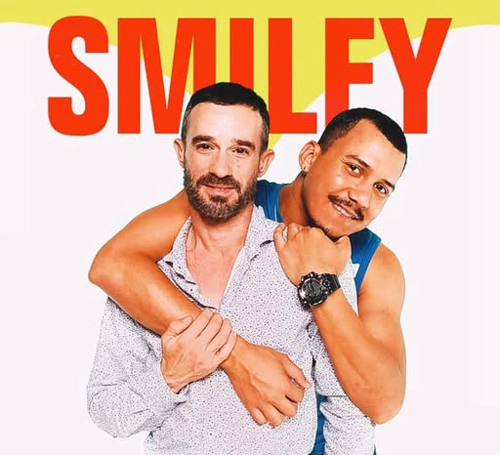Summary: Smiley arrived in Gibara on the penultimate day of the Festival.A gay romantic comedy.Only two actors: Roberto Romero and Georbis Martínez.
Created by Guillem Clua and directed by Josep María Coll. The production comes from Spain. It recently concluded its tour in Havana. It arrived in Holguin, like all good things, over the Gibara tunnel.
Clarification number 1 for all audiences: Smiley has no warnings.It begins with an overly personal monologue about a man left adrift by another.A broken heart.A message from a smiley face (colon, dash, parentheses) with no response.
The message means many things.One of them, that there is an after.Something to hold on to.The lack of responses afterward, the many, are negative. A broken man remains on the stage.A man who has told everything in an audio recording left on his voicemail—so long it split into five.
He undresses in strides over the message. It hits home if you’ve recently been dumped. It hits home if you’re heartbroken. You understand the man who tears himself apart on a call while preparing to open his bar. He’s a bartender. The set arranges itself around him as he speaks. Then he sends it, and another man enters the scene, receiving it and listening to it on the phone. The message was supposed to be for his ex. But he calls the wrong number.
Clarification number 2 for the heterosexual audience. Smiley is a living work. You can feel it in his voice. In the set. In the LED light sign that hangs over the bar and doesn’t turn off until the end. You can feel it in the choreography of bodies.
Roberto Romero is Alex, the scorned bartender.Georbis Martínez is Bruno, an architect who receives a message—five—that’s wrong.But suddenly they connect.They talk about the red thread of destiny.The one that connects two souls destined to meet by the pinky fingers.And they agree to meet.They find each other.
A story of contradictions, coincidences, pain, and departures unfolds through humor, interventions directed at the audience, and internal monologues when thought needs to overcome expression. Roberto still has the taste of old characters, but his chemistry with Georbis complements him, and they both flow on stage.With them, he laughs and understands each other.
I couldn’t imagine anyone else in their roles.Carrying the movement on the simple set of a bar, changing names and characters, surrounding each other and stripping down on the black floor. Because it’s a play of friction.Innovative for the years of intermittent theatrical silence that Holguin has had.
It has been a satisfactory season for theater in our corner of the country.Smiley concludes with this line of productions that April brought.Oficio de Isla, Blanco, Smiley.A good time to find theater. Perhaps there’s a certain caricature in the homosexual representation, although perhaps that’s what he was aiming for.
It can’t be denied that Gibara, the Festival, was the space and moment for Smiley.I try to imagine it at the Suñol, with its red curtain.Perhaps it’s possible.Or perhaps not.But for Smiley to shake up the Holguin audience—one that debated greatly, fought, and expressed itself during the Family Code’s passage—would be necessary.No, it wouldn’t be.It is. We have to wait.
Wait for another room packed with people, cheers and shouts when the lights go down and the actors bow. Wait for another overly personal and laugh-out-loud play. Wait, wait, wait. Wait for another message with a smiley face. Colon, dash, parentheses. Wait for Smiley to return.
By: María Karla Lam González
Translated by Aliani Rojas Fernández
- Installation of Photovoltaic Systems in Rural Communities in Holguin - 19 de January de 2026
- 39th City Salon Opens in Holguin - 19 de January de 2026
- Habanos Festival Among Cuba’s Most Important Tourism Events - 19 de January de 2026

